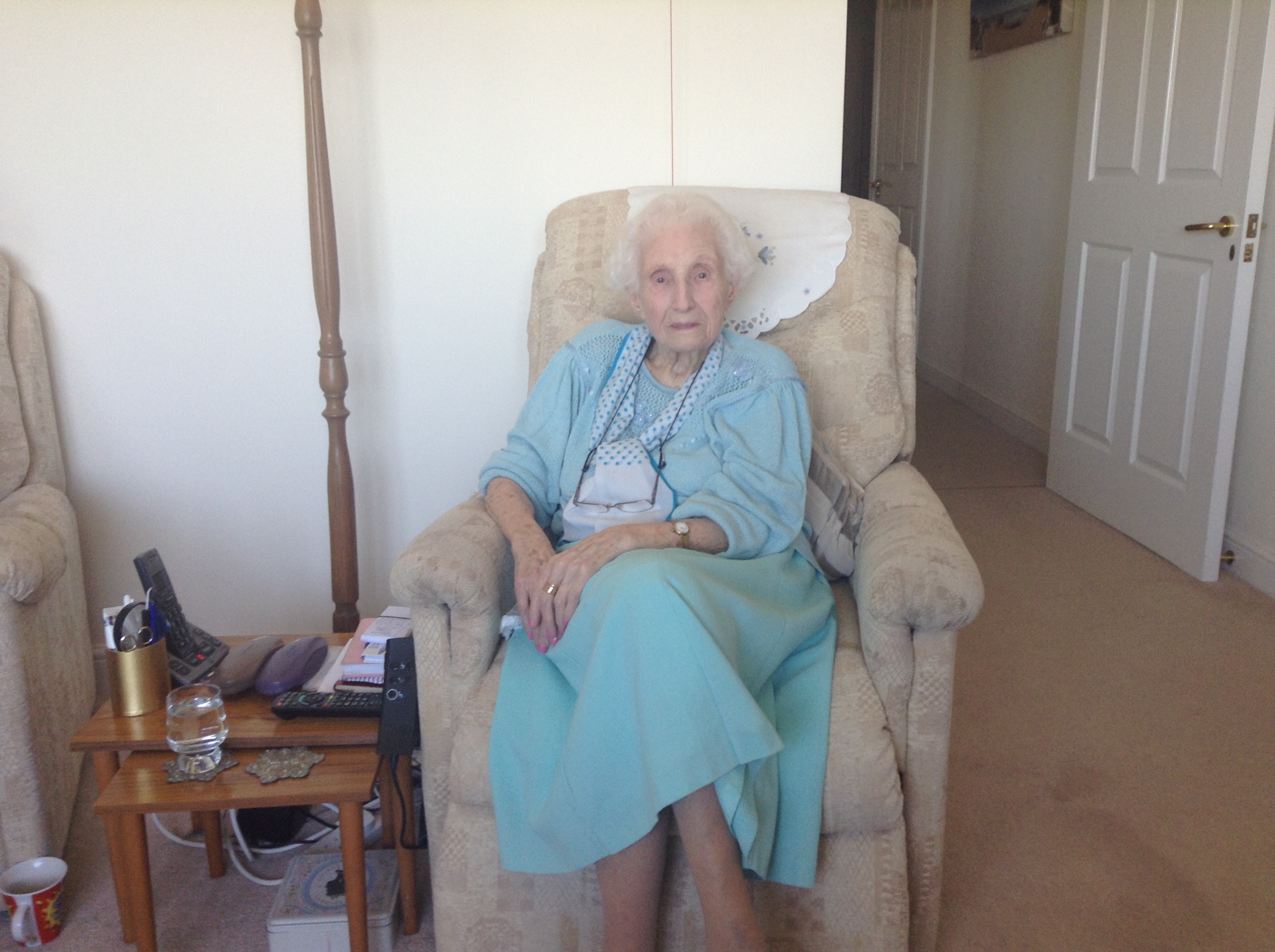
Dorset Care Record Case Study – Rosetta West, Melton Court, Poole
Ninety six year old Rosetta West believes the Dorset Care Record could have made a real difference in the way she was treated after being left stranded on the floor following a fall last year.
The nonagenarian believes a joined up electronic record system would have enabled paramedics treating her to have a better understanding of her medical history.
The additional information, she feels, would have led to enhanced treatment after her fall at the Melton Court residential home in Poole.
Mrs West and her carer, Melton Court manager Fiona Smith, said that if the paramedics had known about her osteoporosis and other ailments she would have received hospital treatment earlier.
“Unfortunately, they weren’t aware of her osteoporosis and so after lifting her put her back to bed. Rosetta found walking afterwards particularly painful and when she was seen at the hospital a week later her leg was so inflamed it wasn’t clear whether she had suffered a fracture to her knee-bone.
“If paramedics had understood Rosetta’s medical history she also wouldn’t have had to wait for so long. When they realised some of here additional problems, they acted as quickly as possible,” said Mrs Smith.
Mrs West, who is allergic to penicillin, feels the joining up of different sets of records – a key component of the Dorset Care Record – will be particularly useful.
She also acknowledges that only having to tell her story once to health professionals will be an improvement. “The last thing when you are in pain and in a hospital is having to repeat your story.”
The Dorset Care Record will share information on a range of key issues to professionals caring for people, including:
- Up to date personal contact details and care needs
- A list of diagnosed conditions – so health or social care professionals have a complete record of care
- Medications – so everyone treating you knows what medicines you’ve been prescribed
- Allergies – to make sure you aren’t given medicine that might give you an adverse reaction
Mrs West, the eldest of eight children, was born in West Ham in London in 1922 and survived the Blitz. During the Second World War she was employed as a repetition copy typist for a paint company that worked on the pontoons for the D-Day invasion in 1944.
She later worked with her first husband in a catering company in Bayswater and then worked for Marks and Spencer in Richmond, living in Twickenham and then Broadstairs in Kent.
Mrs West, who has three grand-children and three great grand-children, has had health problems since she was 19 but is full of praise for the NHS: “They are marvellous. I had a serious operation and was told that I only had five years to live. But 30 years later I’m still going strong,” she said.



Why was SCR not used to access her medication and allergy record – it was available; I appreciate it would not have given her medical history by the Systm1 EPR viewer or MIG would have done – they exist already.